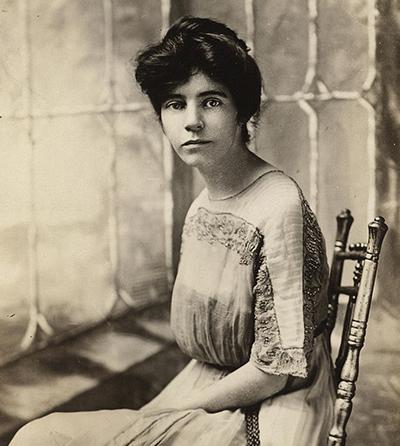Preserving Women’s Stories

On April 12, President Obama expanded the national park system to include the historic Sewall-Belmont House in Washington, D.C. In designating the site as the Belmont-Paul Women’s Equality National Monument, the president honored the trailblazers who fought for women’s rights. President Obama described the site’s significance as “a hotbed of activism, a centerpiece for the struggle for equality, a monument to a fight not just for women’s equality but, ultimately, for equality for everybody.”
The designation of a new national monument is particularly meaningful this year as we celebrate the 100th anniversary of the date President Woodrow Wilson signed the act that established the National Park Service. It is a powerful signal that after 100 years, the park service continues to be a vital and evolving agency. Since its establishment, the national park system has expanded area by area, each new site adding integrity to the whole — another thread, another color, woven into the tapestry that is the story of this diverse nation.
The fight for women’s suffrage is an important piece of the American story told by the park service, but there are more chapters to write, more stories to tell. Women’s rights and the park service have seen much progress in the last 100 years, but there is still work to do. President Obama’s designation of the Belmont-Paul Women’s Equality National Monument is a step in the right direction.
Today, just nine out of more than 400 national parks have been established specifically to tell the story of women’s history in America. The Belmont-Paul monument is a terrific addition to this small number. I hope to see this number grow throughout my lifetime.
As a former National Park Service employee, I’m proud to support a park system that is growing to more accurately reflect the diverse range of stories and places in American history. We need to share the stories and struggles of past generations so that future generations understand our shared history.
It is essential that this president and those who follow him continue to use their authority to add new, significant areas that, in the words of the park service’s 1970 General Authorities Act, are “cumulative expressions of a single national heritage.” Alice Paul, Alva Belmont, and the National Women’s Party fought passionately and tirelessly for equal rights for women. The history of their fight will now be preserved in perpetuity by the National Park Service.
The Belmont-Paul Women’s Equality National Monument will offer visitors the opportunity to explore the nation’s most complete collection of suffrage and equal rights movement artifacts: the documents, banners, sashes, and lobbying cards that help tell the story of women in America. Preserving these historical and cultural treasures is a gift from one generation to the next. I believe with all my heart that our children and their children will, in the words of Stephen Mather, the first director of the park service, “become better citizen[s] with a keener appreciation of the privilege of living here” once they have spent time in national parks.
Each of us can and should find our own meaning in the national parks. From the glorious peaks and canyons to the sorrow-filled Trail of Tears, the authentic voices of our natural and cultural treasures speak to each of us individually. We need to make sure the National Park Service continues to grow to reflect the breadth and diversity of the American experience.
Jackie Lowey is a member of the Coalition to Protect America’s National Parks. She lives in East Hampton and serves on the East Hampton School Board.
